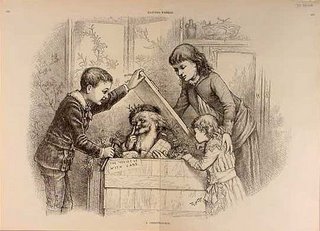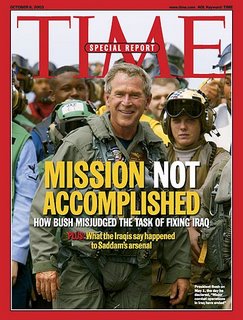… what can be 'right' about the images of the Nativity we've been sold for so long?
The cumulative froth of centuries of Christmases sodden with sentiment and superstition and, latterly, the Victorians' anglicised vision of Bethlehem as some snowy hamlet in the deep and dreamless sleep of the Home Counties, more Reigate than Ramallah, isn't easily dislodged.
And the gospel narratives themselves raise more questions than they answer.
To begin with, it's odd that just two of the four Gospels have anything to say about the Nativity. Mark and John offer no comment at all.
Only Matthew and Luke, both written 60-70 years after Jesus's death, give the story.
And, according to Geza Vermes, Emeritus Professor of Jewish Studies at Oxford and author of a recently published study,The Nativity, it isn't even the same story.
'In our traditional understanding Matthew and Luke are nicely fitted together and their contradictions ignored,' says Vermes.
'But what they say is totally different. And what's more, it appears nowhere else in the New Testament. No repetition. No reference. From which I conclude that it's a secondary addition: a splendid prologue to the life of Jesus supplied by men who had a reason to supply it.'
In other words, the nativity stories were written to appeal to a specific audience and persuade them that Jesus was the son of God.
For Matthew, a Jew writing for Jews, the objective was to show how Jesus's birth fulfilled the prophesies of the Torah. For Luke, a gentile writing for gentiles, the objective was to explain Jesus in terms that a pagan audience reared on myths of gods impregnating mortals would understand.
Unravelling all this is as subtly complicated as only theology can be. But taking the key players one by one, the picture looks like this.
The Virgin Mary is actually called Miriam – she was Jewish, after all – and her virginal status is important to Luke because it fits the Classical image of maidens begetting divine children.
Whereas Matthew has the details of the birth revealed to Joseph in a dream, Luke has an Annunciation made to Mary by an angel. Western painters stress her detachment from the mess of birth by showing her in seated composure.
Painters of Eastern icons let her lie down. And nowhere does The Bible tell us she wears blue. Her wardrobe largely derives from medieval meditations and visionary experiences, such as those of St Bridget, who had a keen eye for detail.
Joseph is usually depicted as a bit-part actor in the drama and as old, although The Bible does not indicate his age. Some pictorial traditions make him a comic figure and certain cathedrals had a vested interest in adding homely details – notably Aachen, which became the proud possessor of St Joseph's stockings, which had been cut up to make clothes for the infant Jesus.
Jesus In paintings, he is usually depicted naked with what would these days be thought an unseemly attention to his penis.
It's uncircumcised, though when the deed is done it will generate a healthy industry in souvenirs. According to one estimate there were enough holy foreskins circulating in medieval times to upholster a suite of furniture.
The Three Kings Only Matthew mentions them. He doesn't call them kings. And he doesn't say how many there are. The earliest nativity scenes show just two, and their number and status were upgraded later, on the grounds that there were three gifts, one of which was frankincense, associated with royalty.
More practically, though, the upgrading of the kings was also connected with the church's desire to allot a role in Christian life to rich potentates (who would otherwise be struggling through the eyes of needles) and get their money.
The kings also symbolised the universal outreach of the Church, to Europe, Africa and Asia. And again, certain cathedrals had a special interest in them: Cologne claimed their bodies and declared them to have died at the respective ages of 109, 112 and 116.
The Ox and Ass There is no mention of them in the Gospels. But if Jesus was born in a stable it would be reasonable to assume their presence. And the first person to make a point of it was St Francis, who is said to have begun the tradition of cribs and nativity re-enactments in the 13th century.
The Shepherds are found only in Luke. Important as a statement of the access ordinary people have to Jesus.
The Star In Matthew but not Luke, and the subject of endless debate as to what, if anything, it might have been. There is no unchallengeable recorded evidence of starry phenomena around this time.
But Mike Rich, the screenwriter of The Nativity, has opted to trust Matthew on the grounds that it could have been a rare alignment of the star Regulus (known in Babylonian as Sharu) with Venus and Jupiter.
Part of what he calls the 'wow factor' in working on the movie was discovering that 'Sharu is the Babylonian for king, while Venus is the mother planet and Jupiter the father. Father, mother and king – that's an intriguing combination.'
The Stable Only Luke suggests a stable, and he's probably referring to a cave, which would have been a more likely place to keep animals. Matthew, by contrast, talks about a 'house'. And that's because he tells a different story about …
Bethlehem Both Matthew and Luke agree that the birthplace is Bethlehem, which is important as the fulfilment of prophesy: it establishes Jesus as successor to King David, who was also born there.
But Luke has Mary and Joseph travelling to Bethlehem as temporary residents, for the census – which is why they ended up in a stable when there was no room at the inn. Matthew says nothing about a census, stable or inn, and gives the impression that Mary and Joseph are permanent residents in that 'house'.
 I’m back from a short holiday trip home to Liberty, Indiana. Liberty is a small town close to the Ohio state line. It is located in Union County – one of the smallest counties (in population) in the United States. It’s the community where I grew up.
I’m back from a short holiday trip home to Liberty, Indiana. Liberty is a small town close to the Ohio state line. It is located in Union County – one of the smallest counties (in population) in the United States. It’s the community where I grew up.
















